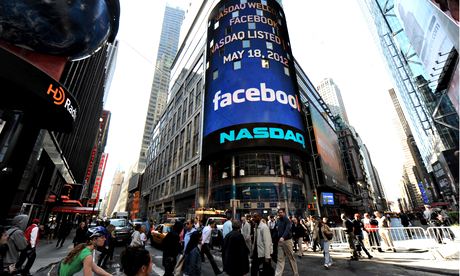
For the first 20 years of the evolution of the internet — from the start of the "internetworking" project in 1973 to the launch of the first major web browser in 1993 – cyberspace (the virtual world behind the screen, as William Gibson put it) and "meatspace" (John Perry Barlow's term for the material world) were, effectively, parallel universes. Cyberspace was the preserve of a privileged elite – the computer scientists, engineers and graduate students who collaboratively designed and had access to it. And the inhabitants of meatspace were, for the most part, blissfully unaware of its existence.
The two universes were radically different. For the netizens of cyberspace, meatspace – the world dominated by "weary giants of flesh and steel", declared Barlow – had purchased a one-way ticket to the dustbin of history. Netizens believed that the internet was about to "flatten organisations, globalise society, decentralise control, and help harmonise people", as Nicholas Negroponte, the MIT guru, put it. The network would bring about the rise of a new "digital generation" – playful, self-sufficient, psychologically whole – and it would see that generation gather, like the net itself, into collaborative networks of independent peers. And so on.
It hasn't worked out quite like that. The launch of the Mosaic browser in 1993 transformed the internet into a mainstream medium and brought the corporate world online, so from then on the die was cast. What happened is that the two universes effectively merged, so we now live in a strange amalgam of meat- and cyberspace in which the elements of each run riot. A virtual space that once had no crime and no surveillance has become one with an abundance of each; and the "real" world has been destabilised by the astonishing power and properties of networks.
Yet public understanding of the implications of this convergence lags some way behind the emerging reality, which is why we need books like this. Astra Taylor is a talented documentary-maker who was dismayed by the way her work was appropriated and pirated online. But instead of fuming silently in her studio, she set out to seek an understanding of the paradoxical world that the merging of cyberspace and meatspace has produced. What she finds is a world which is, on the one hand, hooked on an evangelical narrative about the liberating, empowering, enlightening, democratising power of information technology while, on the other, being increasingly dominated and controlled by the corporations that have effectively captured the technology.
The big question about the net was always whether it would be as revolutionary as its early evangelists believed. Would it really lead to the overthrow of the old, established order? We are now beginning to see that the answer is: no. We were intoxicated by the exuberance of our own evangelism. "From a certain angle," writes Taylor, "the emerging order looks suspiciously like the old one." In fact, she concludes, "Wealth and power are shifting to those who control the platforms on which all of us create, consume and connect. The companies that provide these and related services are quickly becoming the Disneys of the digital world – monoliths hungry for quarterly profits, answerable to their shareholders not us, their users, and more influential, more ubiquitous, and more insinuated into the fabric of our everyday lives than Mickey Mouse ever was. As such they pose a whole new set of challenges to the health of our culture."
Because she's an artist, Taylor's main preoccupations are with culture and creative activity, which is what makes her suspicious of heady rhetoric extolling the creative possibilities of the new technologies for appropriating, sampling and remixing cultural products. In that, she echoes the concerns and analyses of other critics (Jaron Lanier and the late John Updike, to name just two) who asked the same awkward question: if the new technology makes it difficult or impossible for originators to make a living, what will be there to be "remixed" in the end?
But "culture" is a broad concept, and Taylor's book covers the spectrum. She's done a lot of homework and writes well, so The People's Platform will be an invaluable primer for anyone seeking to understand why our networked world isn't all that it is cracked up to be. What she finds is that most of the myths about the enabling/ empowering/ enlightening effects of the internet are just that – myths. Old divisions and inequalities – in access, gender, power, influence and wealth – remain. "Networks," Taylor writes, "do not eradicate power: they distribute it in different ways, shuffling hierarchies and producing new mechanisms of exclusion."
Just to take one example, the gender imbalance in this networked world is particularly startling. 40% of private businesses in the US are owned by women, but only 8% of technology start-ups are. Could this have anything to do with the fact that over 85% of venture capitalists are male? Women use Wikipedia as much as men, but it looks as though they write less than 15% of the articles. Approaching 90% of the contributors to important sites like Reddit and Slashdot are male. And so on.
Why is there not more public debate about awkward facts like these? The answer is partly our credulity about technological progress and its associated myths. But it's also because we've fallen into the trap of thinking that just because a technology can be wonderfully enabling, empowering or enlightening doesn't mean that it will have those desirable effects. The thing that determines what actually happens are the social and economic conditions in which technologies come into being. And, as Astra Taylor shows, they change at a different – slower – pace.

